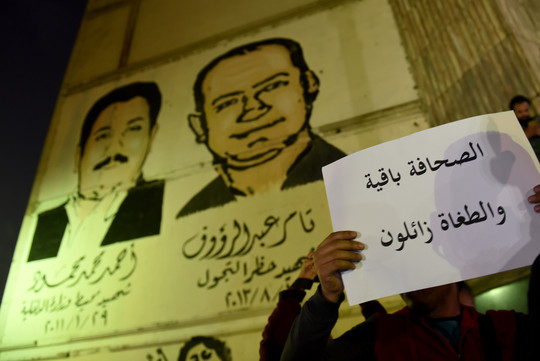Egyptian journalist Abdelaziz was arrested in June 2019 at Cairo International Airport, while travelling from Qatar, where he was based, to Cairo for a family visit. The Egyptian authorities charged him with ‘membership of a terrorist group’ and ‘spreading false information’. These accusations are often used to detain journalists in the country. Almost four years after his arrest, Abdelaziz’s family confirmed his release on 1 May.
Abdelaziz’s detention followed a similar pattern to that for Egyptian journalists Bahaa Eldin Ibrahim, arrested in February 2020, and Rabie el-Sheikh, detained since August 2021. Both also worked for the Qatari-based network and still remain imprisoned.
Since President Abdel Fattah el-Sissi came to power in 2014, several reporters working for Al Jazeera, among other journalists critical of the government, have been targeted by the Egyptian authorities. The arbitrary arrests of Egyptian journalists, activists and academics have been systematically denounced by human rights organisations and press freedom groups, including the IFJ.
IFJ General Secretary Anthony Bellanger said: “At least 17 journalists and media workers remain behind bars in Egypt for carrying out their professional duties. On World Press Freedom Day, we urge the Egyptian authorities to release all imprisoned journalists, whose detention undermines the right to press freedom and freedom of expression, and calls into question its attitude towards human rights.

